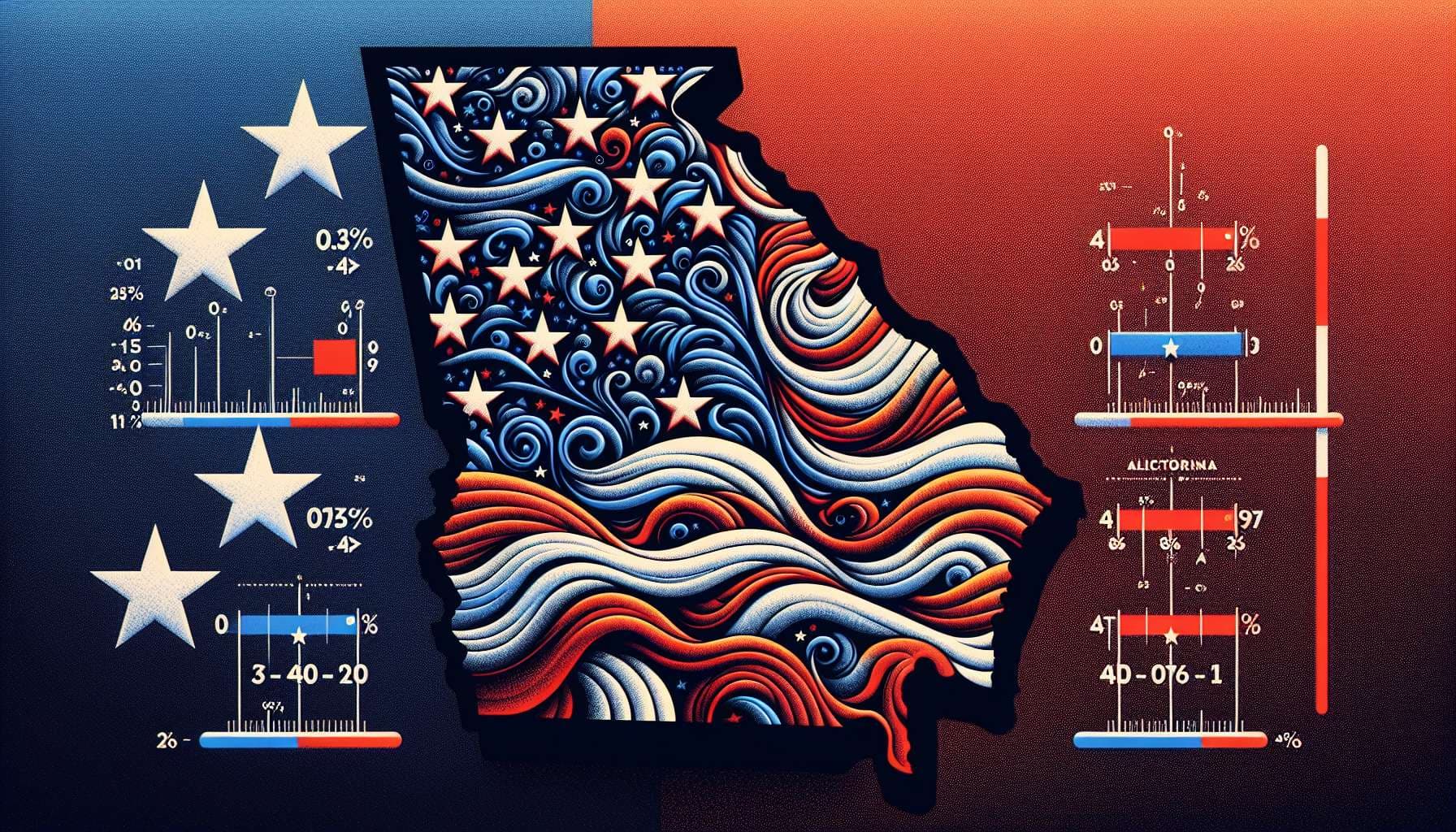
Related markets:
/WalterMartin/will-the-margin-of-victory-in-the-2-4db56fb6e136
/WalterMartin/will-the-margin-of-victory-in-the-2
/WalterMartin/will-the-margin-of-victory-in-the-2-51af5a4e6350
/WalterMartin/will-the-margin-of-victory-in-the-2-d54b8b02937c
/WalterMartin/will-the-margin-of-victory-in-the-2-7bbf3bf11afa
/WalterMartin/will-the-margin-of-victory-in-the-2-b1850c0c8416
The party elected is not relevant to the resolution of this question.
Last election, CNN reported 49.5% - 49.2%:
https://www.cnn.com/election/2020/results/state/georgia
I will use similar criteria for this market, and will not vote in it.
If CNN is reporting within 0.1% of this number, I will look at the actual voter numbers to determine which margin was greater.
🏅 Top traders
| # | Trader | Total profit |
|---|---|---|
| 1 | Ṁ46 | |
| 2 | Ṁ45 | |
| 3 | Ṁ35 | |
| 4 | Ṁ21 | |
| 5 | Ṁ7 |
@ChinmayTheMathGuy Good question. If CNN reports a 0.3% margin again, I will go to a higher resolution to make the determination. Beyond that, I will go with their rounder numbers to keep it simple.
As for current numbers on this market, we don't have close to enough trades to draw any conclusions yet.
@WalterMartin But there's also a scenario where the margin is 0.2% but going to more decimal places shows its greater than 0.23558%
2020 Election GA:
49.5% - 49.2% = 0.3%
49.47% - 49.24% = 0.23%
Suppose
2024 Election GA:
49.5% - 49.3% = 0.2%
49.54% - 49.26% = 0.28%
The MOV was greater than 2020, but also 0.2% by your criteria.
@ChinmayTheMathGuy Fair enough. If it's within 0.1% of 0.3% (i.e. 0.2% or 0.4%) I'll also do this finer-grained check. Same for the other similar markets I've created. When I need to update the linked questions in each of these due to adding another state, I'll also clarify this in the descriptions for each.